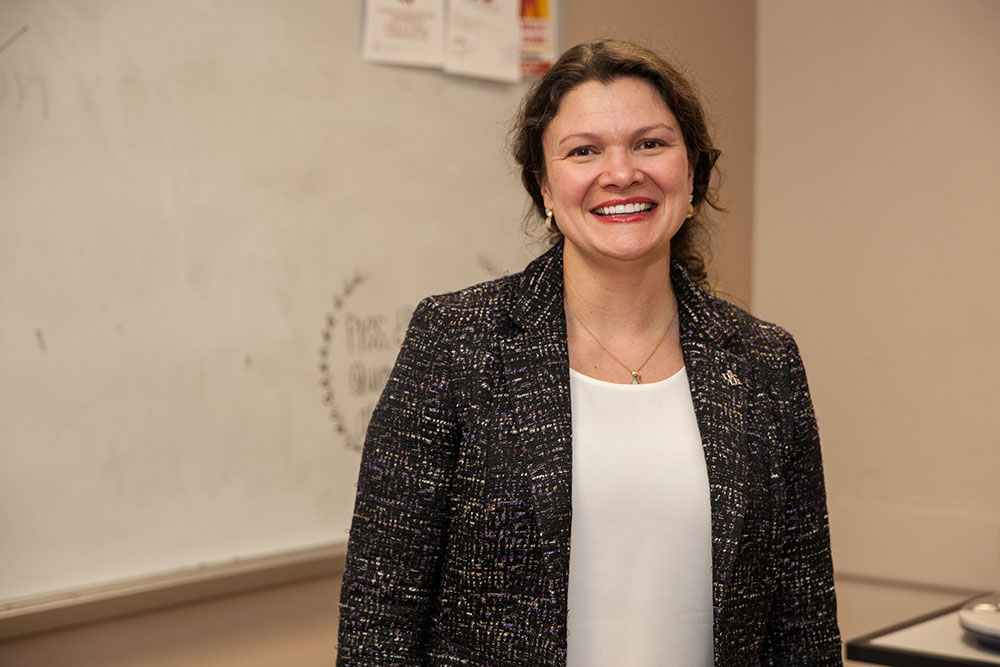Professor helps lead charge for Green Dot program
Editor’s Note: As part of Women’s History Month, UALR is profiling a few of its women faculty of distinction. This is the second in a four-part series.
Although more than 50 institutions of higher education across the country have implemented the Green Dot program, UALR was the first, and is still the only college campus in Arkansas, investing resources to host the violence prevention program.
Dr. Erin Finzer, interim chair of the Department of International and Second Language Studies at UALR, has spearheaded the initiative.
She points to dismal crime statistics, which have remained unchanged for more than 20 years, as the reason programs such as Green Dot are vital to college campuses.
The violence prevention program teaches students and staff various techniques to ensure there is always someone around to see an act of violence about to occur and try to prevent it.
“Traditional violence and crime prevention efforts are not always successful,” she says. “It’s important for the bystander, for all of us, to feel empowered and able to intervene.”
Finzer is also an active member of the university’s Title IX Committee, an umbrella effort to ensure compliance with federal legislation to prevent discrimination based on sex. Her contributions were particularly relevant after the White House task force on sexual assaults released a 2014 report detailing steps for Title IX compliance.
Finzer is often praised by her students, many who appreciate her initiative to involve them in travel abroad and other learning opportunities.
“I love teaching our hard-working students, most of whom make big sacrifices to be able to continue their education,” she says. “I am always inspired by them.”
Finzer received her Ph.D. in Spanish at the University of Kansas. She specializes in gender and ethnic issues in contemporary Latin American literature and culture.
Her current research is on female intellectuals throughout the Americas who promoted conservation and environmental justice through their writing and activism during the early twentieth century.
“I tell new undergraduate students not to be afraid to follow what they feel passionate about,” she says.
